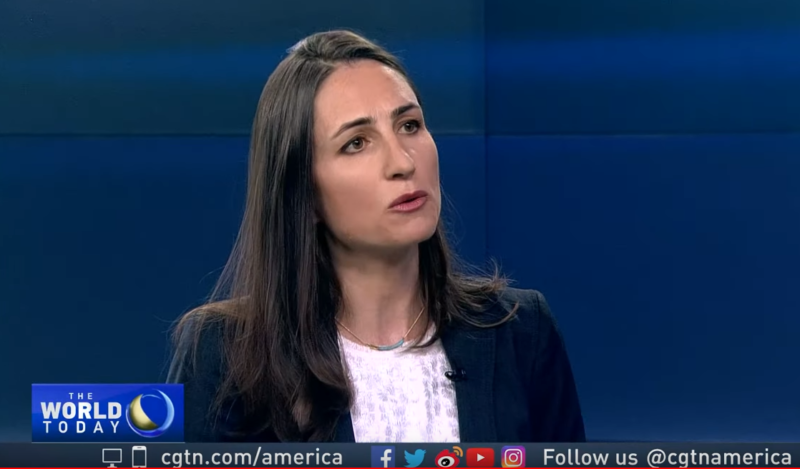Rising Brazil: The Choices Of A New Global Power
What should we expect from a newly powerful Brazil? Does the country have the capacity and leadership to be a central actor in addressing critical global and regional problems?
Lisa Viscidi, director of the Energy, Climate Change & Extractive Industries Program, appeared on CGTN to discuss the reasons for the unprecedented blackout that affected all of Argentina and Uruguay and parts of Paraguay on June 16 and how it affects Argentine President Mauricio Macri's re-election campaign, and whether it could happen again.
It was a huge blackout - it affected all of Argentina, all of Uruguay, 48 million people. Everything was out except for places like hospitals that have generators. Traffic lights were out, public transportation was down, people were told to conserve water because some water pumps were not working. Businesses had to close down because there were no lights. It was really on a huge scale. It was very unprecedented.
Mauricio Macri came to power in 2015 promising to reinvest in the grid and end what he called the failed energy policy of his predecessor. This must be somewhat embarrassing for him, and I imagine people are going to pounce on this given the economic crisis of late. What is your sense of what the reaction of citizens will be?
This was one particular outage and they're still looking into exactly what caused it, but it was some sort of technical failure near the hydroelectric dams. I do think it reflects a broader problem of not investing enough in the transmission and distribution system. Macri had said "we have to get rid of these subsidies," as electricity is incredibly cheap for people in Argentina, meaning there is not enough money to invest in the grid. So this is part of what he promised to turn around and that, I think, that he intends to turn around but didn't realize that it's going to take a lot longer than he had planned. And now suddenly he's up for re-election in October and these problems have really not been solved.
Does this point to a larger problem throughout the continent or region?
Yes, Latin America has high electrification rates, meaning access to electricity overall is high, but blackouts are frequent so the reliability of electricity is not good in a lot of countries. We've seen this type of blackout in other countries, especially during droughts in countries that rely a lot on large hydroelectric dams like Brazil, where it happened years ago and there was a huge economic impact, major economic losses. And it hurts politically as well.
Can this be a wake-up call for Argentina, a good thing in a sense?
I think if they take action, but it's complicated. It costs money to invest in the grid, it takes time, you need to develop, you need to attract private resources from companies. So I'm sure that they'll want to do more, but whether they can resolve all these problems in the rest of this president's term, I don't know.
The energy secretary said "from zero to ten there is a zero chance this will repeat itself, it can't repeat itself." Do you think he's right?
I think that they could probably prevent this from happening again, it was a technical flaw that was very unusual. I don't think this is like Venezuela where I would expect to see more and more blackouts, because the scale of the problems in Venezuela are much more serious. I think they probably won't see it again on this scale but we may see some smaller blackouts again.
[embed]https://www.youtube.com/watch?v=O2jx1Vtncog[/embed]
What should we expect from a newly powerful Brazil? Does the country have the capacity and leadership to be a central actor in addressing critical global and regional problems?
President Lula da Silva triumphantly announced that he and his Turkish counterpart had persuaded Iran to shift a major part of its uranium enrichment program overseas—an objective that had previously eluded the US and other world powers. Washington, however, was not applauding.
Hugo Chavez, the Venezuelan president, has clearly been enticed by the Libyan drama, where his longtime friend and ally, Muammar al-Qaddafi, is under siege from rebel forces.
 CGTN
CGTN